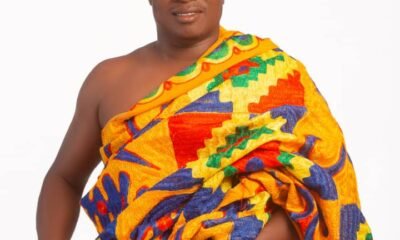News
Shai Osudoku Assembly not forcibly taking lands for construction of Dodowa market

The Shai Osudoku District Assembly in the Greater Accra Region would not forcibly take over anyone’s land for the construction of the Dodowa market.
However, any family or individual whose property falls within the construction zone and have valid proof of ownership would be adequately compensated, the District Chief Executive (DCE), Daniel Akuffo, has said.
According to him, “Ghana has both statutory and customary land tenure systems that run together, adding Article 267 of the 1992 Constitution makes it clear that chiefs and family heads are the custodians of such lands and have authority to enforce right and obligation to any land that has been granted”.
Mr Akuffo said these at a media briefing on Thursday at Dodowa to highlight the assembly’s position on the re-construction of the Dodowa market following media reports that the assembly has forcibly taken over land belonging to the people to construct the market.
The assembly, he explained shall, under no circumstance deny any rightful owner of a piece of land in the Dodowa market.
“As a public institution regulated by legal framework, we are to ensure that payment of any public money to a third party for whatever purpose, must follow provisions of the Public Financial Management Act 2016, Act 921, the Public Financial Management Regulation 2019, LI 2378 and other related enactments,” he added.
Mr Akuffo stated that payments of compensation cannot be made unless all the processes were exhausted and all encumbrances cleared for the compulsory acquisition of the site measuring 16.680 acres pending the issuance of the Executive Instrument (EI) by government for the payment of the compensation.
The DCE said funding had been secured to transform the aged market into a modern one that would serve the interest of the people, as such this opportunity must not be lost.
He therefore advised those peddling falsehood and hoisting red flags around the market to desist from such acts and submit their documents for processes of verification and payment to begin.
Mr Akuffo also denied any knowledge about crop compensation but promised to pay when the right documents were presented.
“All temporal permits issued for container placement has been revoked and stressing that no money has been collected by the assembly for stores allocation on the yet to be constructed market,” he added.
Mr Akuffo urged property owners to stop engaging criminals as land guards and warned that anyone caught would not be spared adding, “no one would be allowed to use personal interest to disturb the peace the area was enjoying.
FROM LAWRENCE VOMAFA -AKPALU, DODOWA
News
Embrace peace, reconciliation …Pres Mahama tells Muslims

The President, John Dramani Mahama, joined Muslims all over the country to celebrate Eid- ul-Fitr at the Black Star Square on Monday to climax the 30-day period of fasting.
Led by the National Chief Imam, Dr Osman Nuhu Sharubutu, intercessory prayers were offered with hundreds of worshippers in attendance.
Addressing the congregation, President Mahama reflected on the values of Ramadan and urged Ghanaians to embrace peace, reconciliation and generosity.
“Ramadan teaches us sacrifice, discipline and compassion – values we need to build a prosperous nation,” he said.
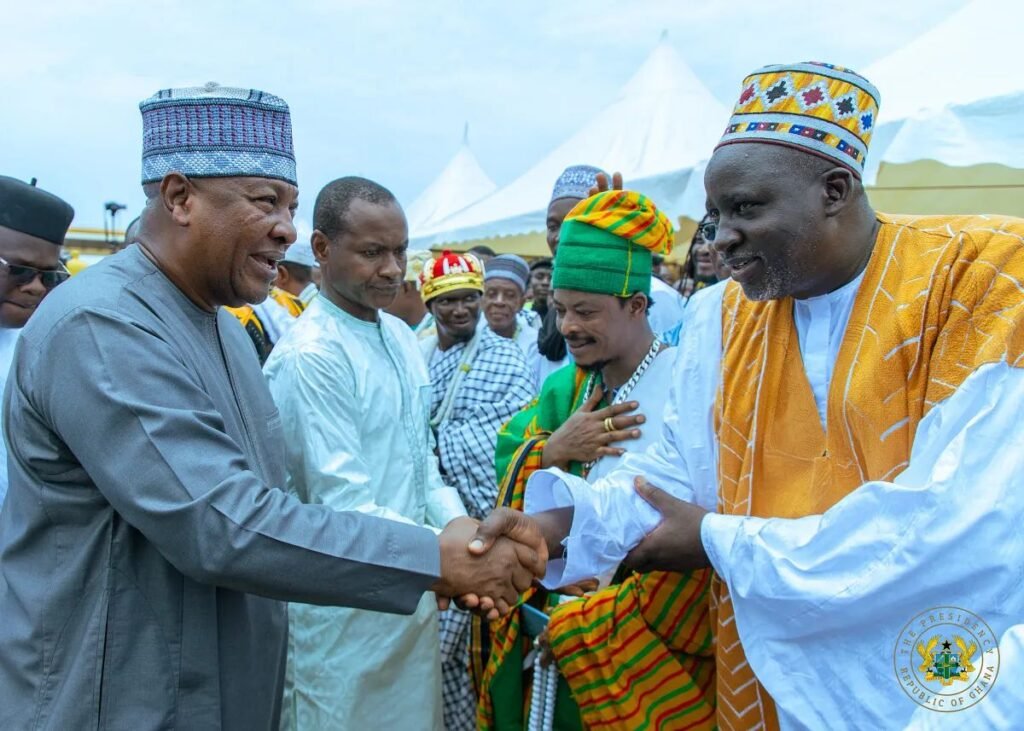
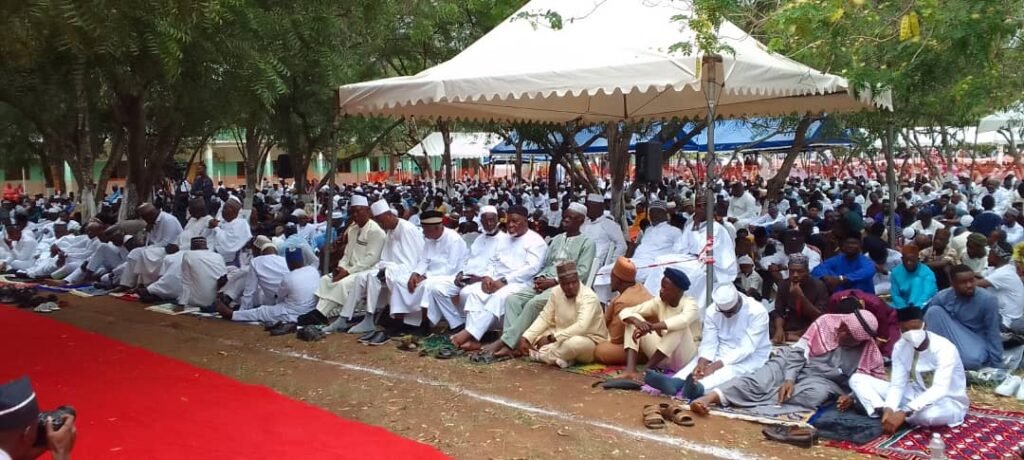
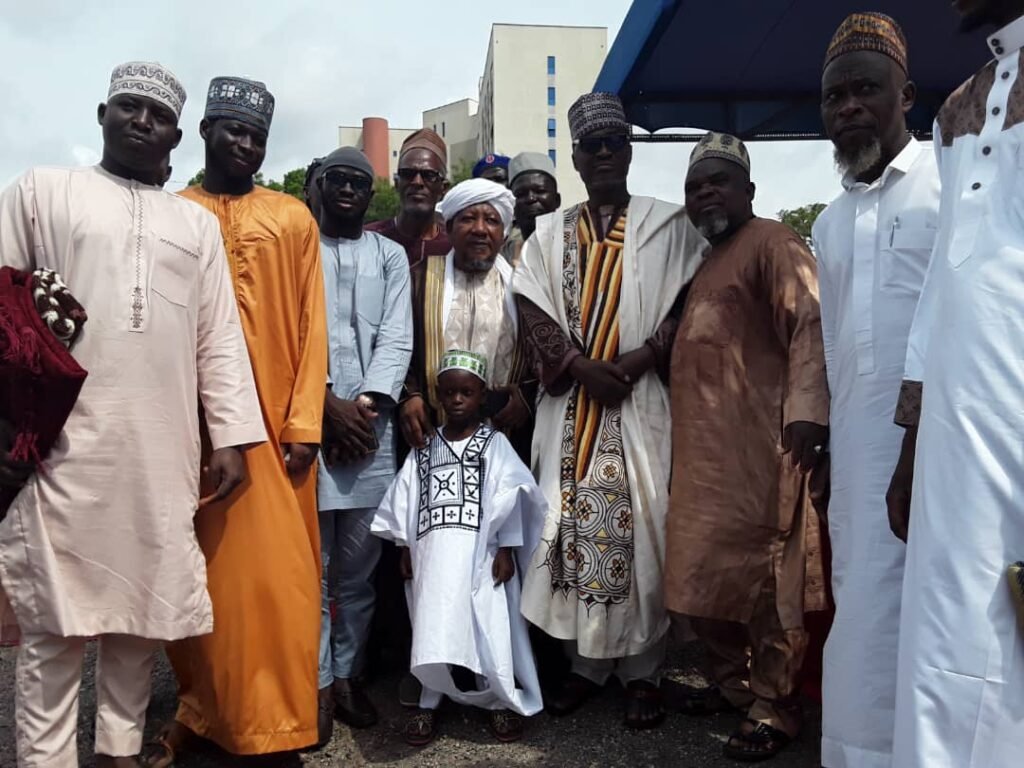
President Mahama acknowledged the contributions of Muslim communities to the country’s development, particularly in education, health care and entrepreneurship.
He renewed his call for an end to the conflict in Bawku, urging factions in the conflict to “give peace a chance.”

Synonymous with the celebration, families gathered and shared food and soft drinks with neigh-bours and loved ones while others stepped out gallantly in white and radi¬ant outfits for the occasion.
Here are scenes from the celebration from the Black Star Square and other places.
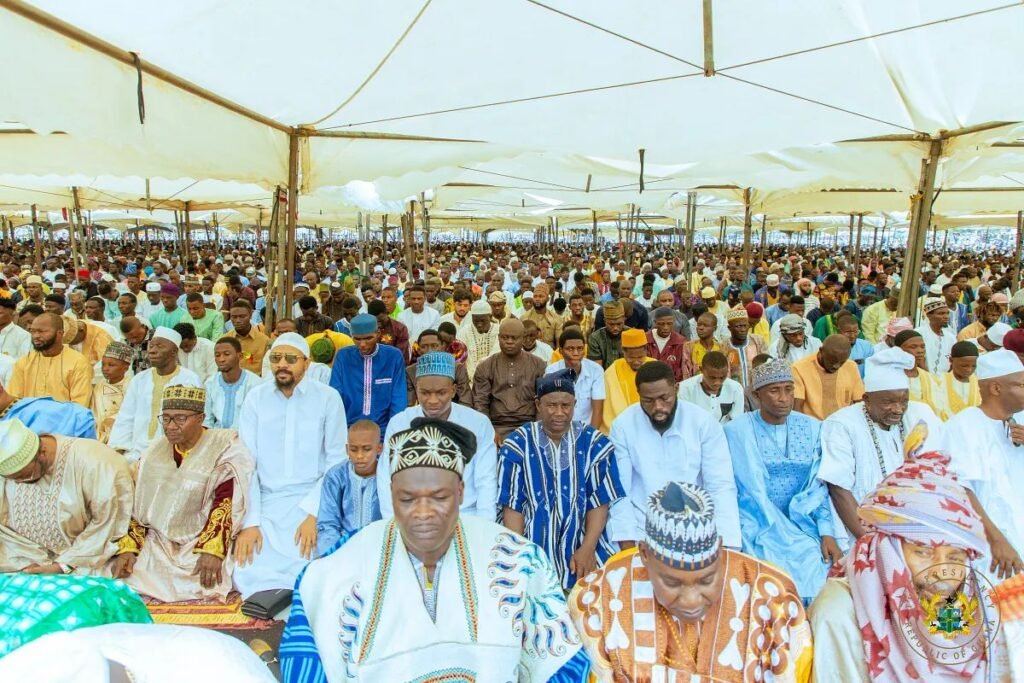
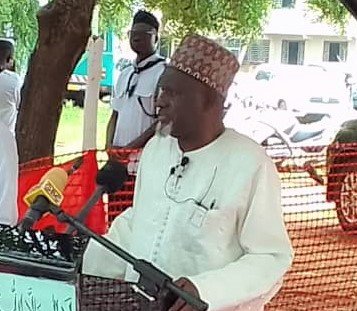
gathering at Ashongman
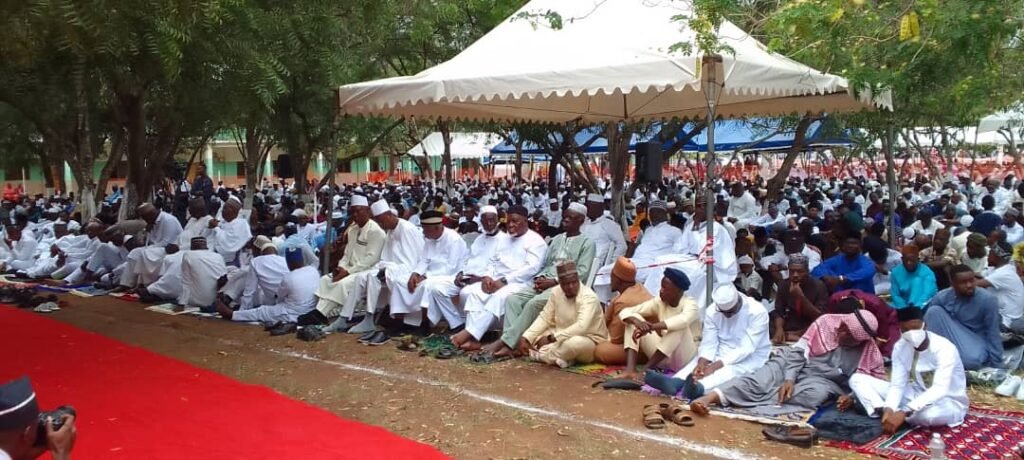
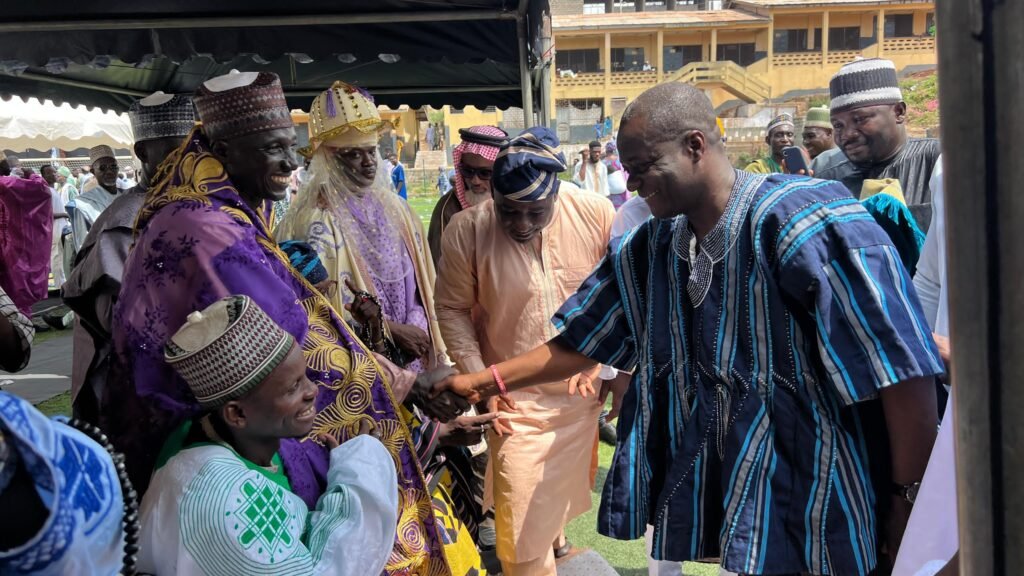
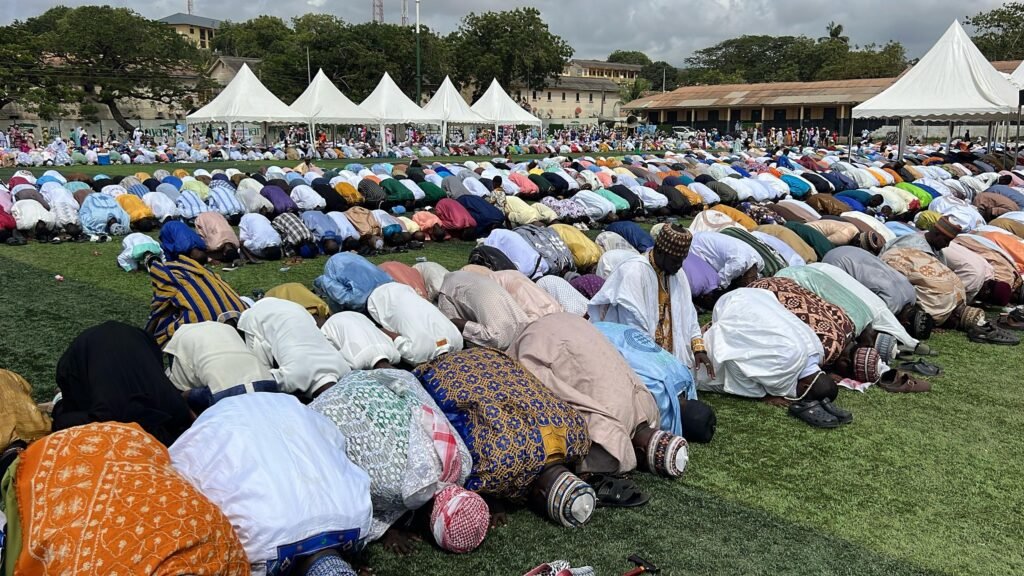
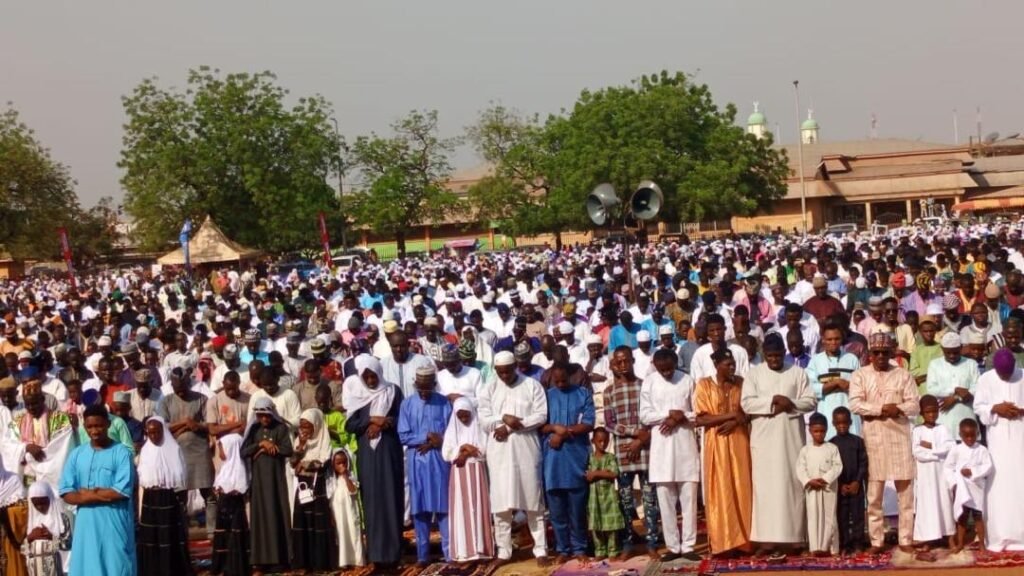
By Linda Abrefi Wadie
News
Cut in USAID funding: Uncertainty, fear grip health workers, patients in N/R

In the remote village of Karaga, a midwife at the local health centre is running out of options.
The centre, which serves hundreds of women and children, has been severely affected by the recent suspension of USAID funding.
Without essential medical supplies, Fati and her colleagues are compelled to take difficult, sometimes heartbreaking decisions.
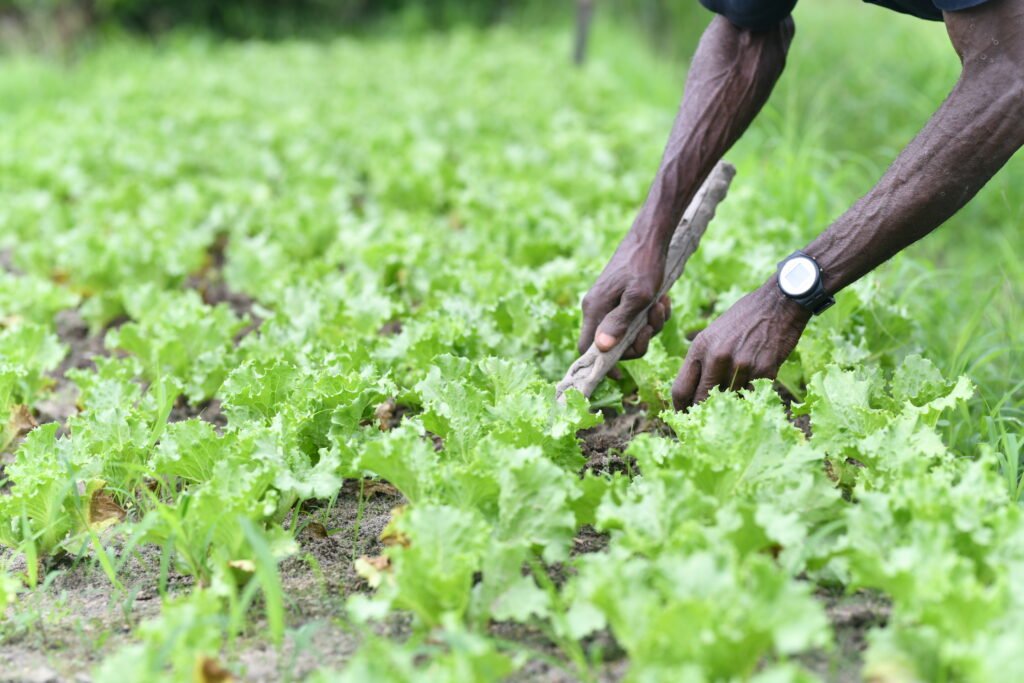

“Just last week, we had to send a pregnant woman to another facility miles away because we didn’t have the right drugs to stabilise her condition,” she says with frustration in her voice. “We don’t know how long we can keep going like this,” she added.
Fati’s story is one of many unfolding across Northern Ghana, where USAID-funded programmes provide crucial support for maternal health, malaria treatment, family planning, and HIV/AIDS care.
The sudden funding halt announced last week has sparked widespread fear and uncertainty among health workers and residents, who now face the grim reality of a potential healthcare crisis.
Mohammed Karim, HIV patient and a father of five, worries about his life and that of his children.
“I am afraid in some few days to come, my health would deteriorate because without medicine, what are we supposed to do? We rely on the clinic, but now even the nurses are helpless,” he laments.
“Our lives will be miserable if no intervention is made. What are we going to do with all this stigma around us?” she asks with a chilly voice.
Health officials have warned that if no immediate action was taken, the suspension could lead to a surge in preventable deaths.
A Health worker (name withheld), describes the situation as dire.
“Many of our facilities are dependent on USAID-supported supplies. Without them, we will see increased maternal and infant mortality, more malaria cases, and disruptions in HIV/AIDS treatment,” he explained.
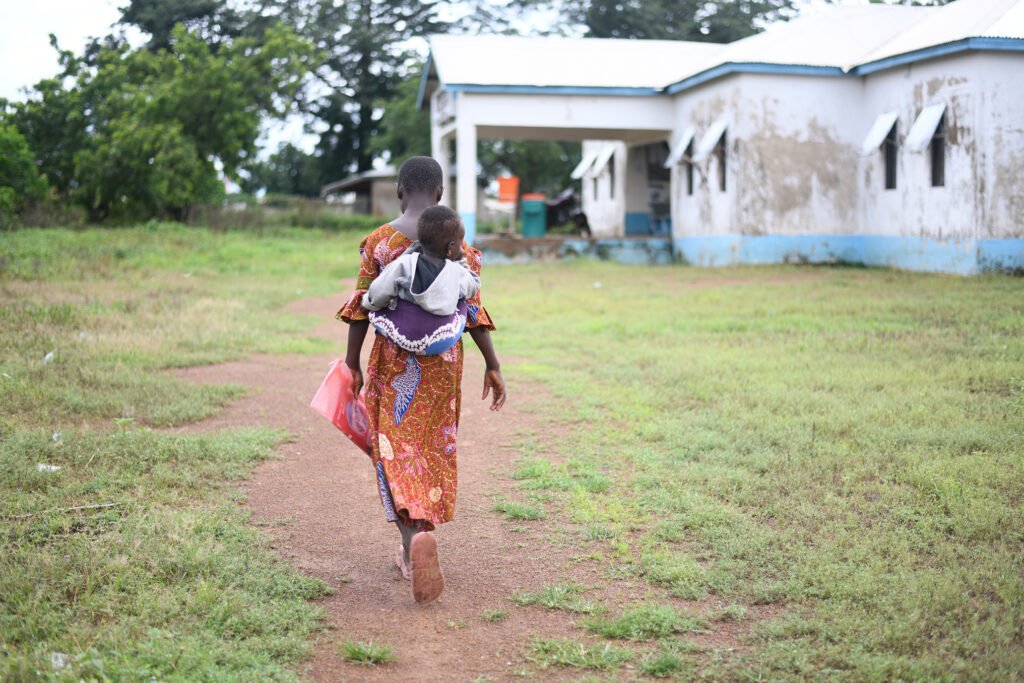
“As you can see, all these women are here for medication and other supplies for their children, but with the directive by President Donald Trump in stopping the distribution of medical supplies they are stranded,” he added.
The impact is already being felt. Health centres are reporting dwindling stocks of antimalarial drugs, contraceptives, and HIV test kits. Without urgent intervention, experts warn that years of progress in public health could be reversed.
In response, President John Dramani Mahama has directed the Ministry of Finance to explore ways to bridge the financial gap left by the USAID funding cut.
However, no clear timeline has been provided for when alternative funding might materialise. In the meantime, local health authorities and international organisations are scrambling to find emergency solutions.

For parents like Hajaratu, a mother of four, the situation is unbearable. “This is a matter of life and death. We need help now!” she pleads from the overcrowded health centre.
As uncertainty looms, communities across northern Ghana can only hope that aid arrives before the situation spirals out of control.
From: Geoffrey Buta, Karaga


